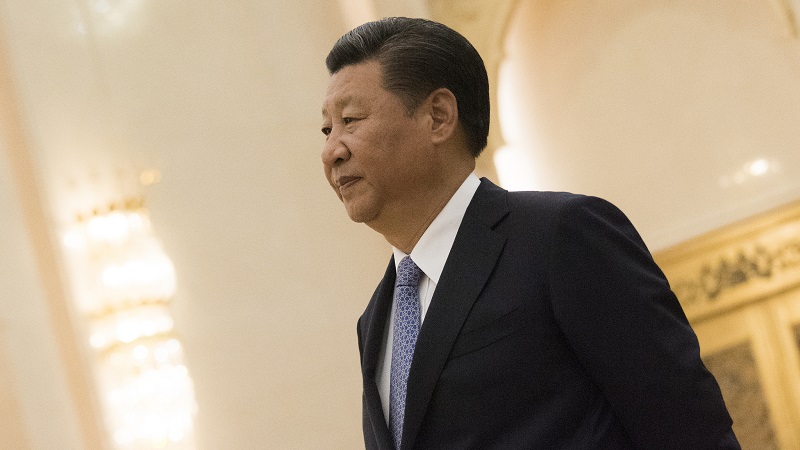Foreign policy: Rising China as rule-taker or rule-maker?
November 29 2017

Note: This article appeared in the Australian Institute of International Affairs' blog, Australian Outlook, on November 29 2017.
From an official Australia-China relations standpoint, the release of the Australian government’s Foreign Policy White Paper has gone smoothly. It was reported that China’s foreign ministry had said that while the white paper contained 'some negative statements' and 'irresponsible comment', notably in relation to the South China Sea, a full reading showed 'an objective look at the China Australia relationship'. Chinese government complaints about Australia’s position on the South China Sea are nothing new.
But the official response isn’t the whole story. Nick Bisley, professor of international relations at La Trobe University and editor in chief of the Australian Journal of International Affairs, was in Beijing attending a bilateral dialogue at the time of the paper’s release. He tweeted, 'I cannot stress enough how much they hate the FP [Foreign Policy] White Paper.'
And the Chinese he was speaking with were elites who ‘liked’ and had a ‘soft spot’ for Australia. Nonetheless, they had read the document as distinctly tilted against China.
Prime Minister Malcolm Turnbull has dismissed any suggestion that Australia is signalling a policy of China containment. Rather, the white paper repeatedly states that Australia’s core interest is in maintaining a ‘rules-based order’.
But Sam Roggeveen, a senior fellow at the Lowy Institute has observed that the ‘order’ the prime minister and Minister for Foreign Affairs Julie Bishop 'had in mind was the one created by the major powers after the Second World War and led thereafter by the US.' Minister Bishop wasn’t hiding her position, stating, 'global order will flow from power and US hard power will remain an essential underpinning of rules-based order. We have to stick with the US and play a long game.'
What scope this leaves for China’s legitimate rise and for the world’s most populous country and second-largest economy to become a global rule-maker rather than just a rule-taker is unclear. The best the white paper managed was to say that 'some change to institutions and patterns of cooperation' is 'inevitable, necessary and appropriate' to reflect the greater weight of large developing countries, one of which is China.
Many Chinese would be bewildered that Australia could construe China’s rise as a potential threat to its core interests. After all, no other developed country has benefited more from China’s expanding wealth. Over the past year alone, China has bought more than $110 billion of Australian goods and services. Julie Bishop has also been quick to argue that China has been a major beneficiary of the existing order. That being the case, Chengxin Pan, an associate professor of international relations at Deakin University points out the obvious contradiction, 'it is a flawed logic to suggest that China at once benefits from and undermines the same rules-based order'.
Earlier this year The Economist concluded that China’s revisionism is about 'wanting to expand influence within the system. It is neither a revolutionary power bent on overthrowing things, nor a usurper, intent on grabbing global control.'
Yes, China does not always act in accordance with international law, with the South China Sea being perhaps the most obvious example. But as the Sydney Morning Herald’s international editor, Peter Hartcher remarked last week, 'all great powers are selective about breaking the international rules. The difference is that when the US did, it was an Australian ally doing it.'
The fact that the white paper applies a largely uncritical lens to the US and other Indo-Pacific democracies such as Japan inevitably prompts Chinese scepticism.
It is explicitly noted that Australia is 'particularly concerned by China’s actions in the South China Sea. And the Australian government reaffirms its position that the 2016 United Nations Convention on the Law of the Sea (UNLCOS) arbitration panel that ruled in favour of the Philippines in a dispute with China is 'final and binding'.
Yet at the same time the white paper is silent on the fact that the US has not even ratified UNCLOS, the very international law it insists China ought to abide by. Ironically, for US critics of UNCLOS the outcome for China of the recent arbitration case may serve 'as prime evidence of meddling by an international court'.
There are currently 45 treaties awaiting ratification by the US, one dating back to 1949. Benjamin Zala, a research fellow at the Coral Bell School of Asia Pacific Affairs at the Australian National University (ANU) says the conflation of US power and a rules-based order is the white paper’s 'fundamental problem'.
And while the document nominates Japan as a 'nation with which we share values and interests', no mention is made of its highly dubious claim to a 200-nautical-mile exclusive economic zone (EEZ) around Okinotori—a tiny uninhabited atoll in the Philippine Sea. Okinotori is many times smaller than Itu Aba (the largest formation in the Spratly archipelago), which the 2016 UNCLOS panel ruled was a 'rock' incapable of generating an EEZ. Yet that did not stop Japan from detaining a Taiwanese vessel last year for ‘illegal’ fishing 150 nautical miles off the feature.
While the white paper acknowledges that as China’s power grows the region will change in ways 'without precedent in Australia’s modern history', one still gets the distinct impression that this may not have fully sunk in. It also contends, 'in parts of the Indo-Pacific, including Southeast Asia, China’s power and influence are going to match, and in some cases exceed, that of the United States.'
In fact, this may already have happened. Earlier this year, a survey of elite opinion by a leading Singaporean think tank found that 73.9 percent of respondents nominated China as the most influential in the region. Only 3.5 percent said the US.
Now consider what the Australian government’s own forecasts expect will happen between now and 2030. In purchasing power parity terms, China is set to add $21 trillion to its economy. This is greater than the combined growth of the US ($5.4 trillion), India ($12.2), Japan ($0.7 trillion) and Australia ($0.5 trillion). In a mere 13 years, China’s economy will be close to double the size of the US.
Yet, as Matthew Sussex, academic director of the ANU’s National Security College observes, the white paper appears to conclude that the 'solution to declining US leadership is more US leadership'.
Earlier this year, Australia’s first ambassador to the People’s Republic, Stephen Fitzgerald urged:
[N]ow, more than at any time in our history, we need a relationship with China [that in former Prime Minister Gough Whitlam’s words is] ‘comparable with that which we have, or seek, with other major powers.’ Why? Because we are living in a Chinese world. But we don’t have a relationship to match it.
The white paper doesn’t inspire a great deal of confidence that we are on our way.
James Laurenceson is Deputy Director of the Australia-China Relations Institute at the University of Technology Sydney.

